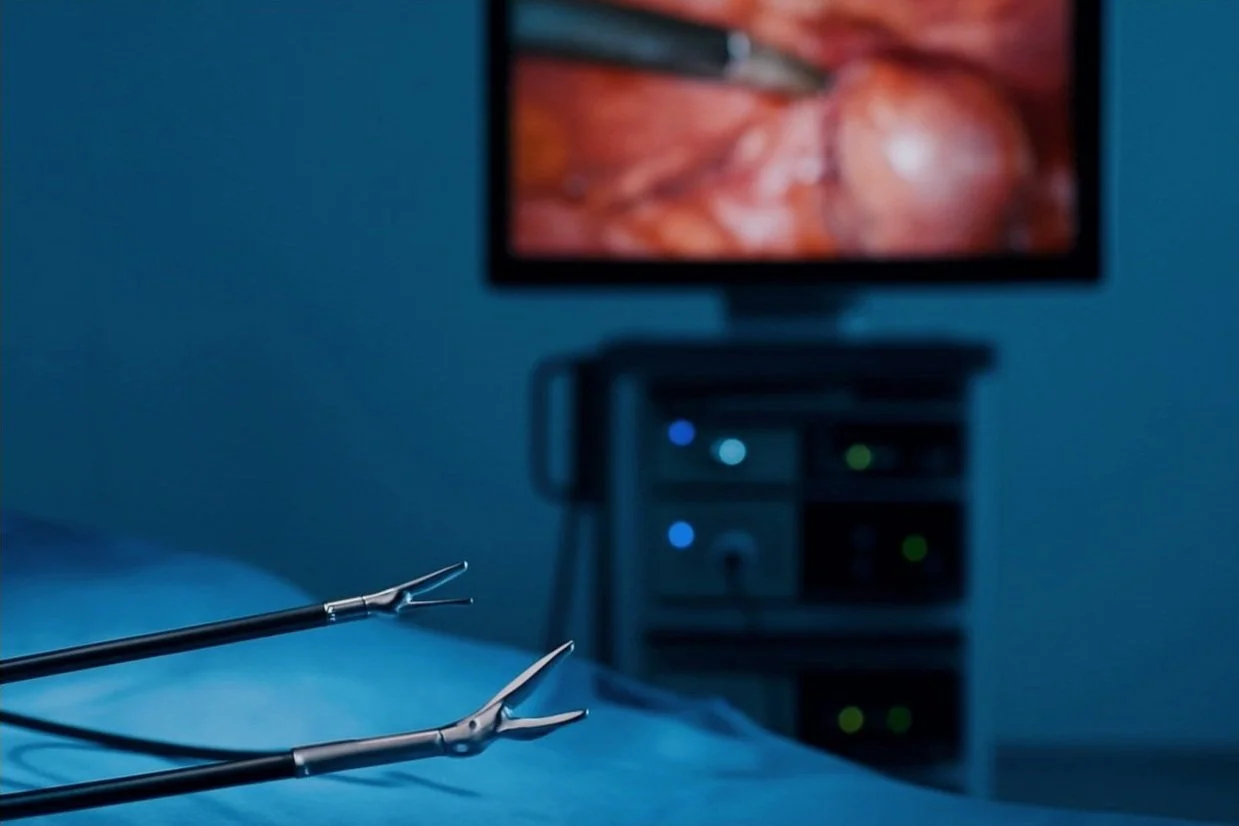Dr Nima Ahmadi manages a broad range of conditions across General Surgery, Colorectal Surgery, and Peritoneal Surface Oncology. In addition to complex open procedures, he specialises in advanced minimally invasive techniques such as Laparoscopic and Robotic surgery to support faster recovery and better outcomes. His approach is centred on compassionate, individualised care, with each treatment plan tailored to the unique needs and circumstances of every patient.
Endoscopy
Endoscopy is a minimally invasive procedure that allows direct visualisation of the gastrointestinal tract using a thin, flexible camera. This includes gastroscopy, which examines the upper GI tract (oesophagus, stomach, and duodenum), and colonoscopy, which examines the large bowel. These procedures are essential for diagnosing, managing, and sometimes treating a wide range of digestive conditions.
Common Conditions Diagnosed or Treated with Endoscopy:
Bowel cancer and polyps (diagnosis and screening)
Diverticular disease
Inflammatory bowel disease (Crohn’s disease and ulcerative colitis)
Haemorrhoids and anal pathology (via flexible sigmoidoscopy)
Gastroesophageal reflux disease (GORD)
Peptic ulcers
Unexplained gastrointestinal bleeding
Iron deficiency anaemia
Coeliac disease and lactose intolerance
Dr Nima Ahmadi is GESA-accredited (Gastroenterological Society of Australia) for both diagnostic and therapeutic endoscopy, including gastroscopy, colonoscopy, and polypectomy.
General Surgery
Dr Nima Ahmadi manages a broad range of general surgical conditions. This includes the diagnosis and surgical treatment of common issues affecting the abdomen, skin, and soft tissues. He aims to provide timely, evidence-based care with a focus on patient comfort, safety, and recovery.
Common General Surgical Conditions Treated:
Hernias
inguinal (groin)
umbilical (belly button)
incisional
parastomal
Appendicitis
Abscesses and infections
Pilonidal disease
Skin and soft tissue lesions (lipomas, cysts)
Minor gastrointestinal procedures and investigations
Dr Ahmadi performs both open and minimally invasive (laparoscopic or robotic) procedures, tailored to the specific needs and condition of each patient.
Colorectal Surgery
Colorectal surgery focuses on the diagnosis and treatment of conditions affecting the colon, rectum, and anus. These procedures are often complex and best managed by surgeons with dedicated subspecialty training. In Australia and New Zealand, this is provided through the Colorectal Surgical Society of Australia and New Zealand (CSSANZ). Dr Nima Ahmadi has completed accredited training through CSSANZ and is recognised as a specialist colorectal surgeon, ensuring expert care in the management of both routine and advanced colorectal conditions.
Colon and Rectal Cancer:
Surgery is the main treatment for most colorectal cancers. It involves removing the segment of the large bowel where the tumour is located, along with the surrounding lymph nodes, to ensure accurate staging and reduce the risk of recurrence. The specific surgical approach—whether open, Laparoscopic, Robotic—is tailored to each patient based on the location and extent of the cancer. All these options are available to both public and private patients alike.
Benign Colon and rectal conditions:
Diverticular disease
Inflammatory bowel disease
Trans-anal Minimal Invasive Surgery (TAMIS)
Proctology:
Haemorrhoids
Banding
HAL-RAR/THD
Fistula in ano
Fissure in ano
Perianal abscess
Cytoreductive Surgery (Peritonectomy)
Cytoreductive surgery (CRS), sometimes known as Peritonectomy, is a complex procedure used to treat selected patients with peritoneal surface malignancies, such as pseudomyxoma peritonei, peritoneal metastases from appendiceal, colorectal, gastric or ovarian cancer, and peritoneal mesothelioma. The goal is to remove all visible tumours within the abdominal cavity, often in combination with heated intraperitoneal chemotherapy (HIPEC).
These procedures require expert coordination and are performed within a highly specialised multidisciplinary team, including surgical oncology, medical oncology, radiology, pathology, and allied health professionals. In New South Wales, cytoreductive surgery is performed exclusively at Royal Prince Alfred Hospital and St George Hospital—the state’s two designated centres for peritoneal malignancy.
Dr Nima Ahmadi has completed dedicated training through the European School of Peritoneal Surface Oncology (ESPSO), an internationally recognised program focused on the management of peritoneal surface cancers. He is accredited to perform cytoreductive surgery at both centres. He works closely with multidisciplinary teams at each site to ensure comprehensive, individualised care for every patient.





